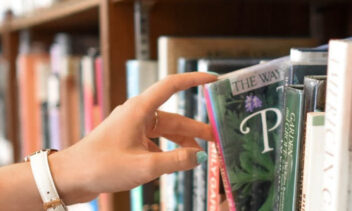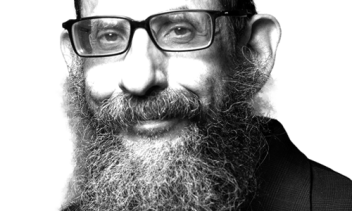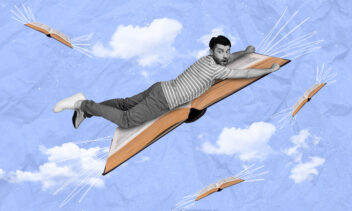In a song that is now a classic of Israeli music, the singer croons about a wall, (the Wall), singing that “There are men with hearts of stone / and there are stones with hearts of men.” Many of us may have experienced this truth, in Jerusalem, and maybe also in our own homes.
But book lovers know a similar truth: “There are people with hearts of books / and books with hearts of people.” Some people communicate like books, full of dry information and lists of facts that they know, and some bookshelves communicate like people, with heart. Put differently, we might say this: Some books have heart, some words have heart.
This week, we are looking for words with heart, in our newest reading list. We put together recommendations from our recent guest, writer Avital Chizhik-Goldschmidt, along with recs from David Bashevkin, our student board, and your host here today, Yehuda Fogel. Find a park, beach, or couch, and check out these powerful non-fiction reads. We hope that you find meaning in these words, and hopefully we can all grow, together.
The Books We’re Reading:
- Avital Chizhik-Goldschmidt: Word with Heart
For her recommendations, Avital, a journalist and writer whose masterful storytelling is worth a read for all, turns to words with heart. First off is Didoan’s short essay on life and youth in New York (linked here!), which Avital appreciates as being one of the best portraits of what New York means to its inhabitants, where it feels like ‘something remarkable can happen at any moment.’ Next up is Amos Oz’s deeply illumining memoir, the subject of Avital’s thesis, “a story of nostalgia, an unrequited love of Europe… and immigration.” Last up is Sabrina Orah Mark’s article in Paris Review (linked here!), a powerful meditation on carrying the brokenness of one’s past, and one’s national past, in the form of the broken Luchot, or as Avital puts it: A dvar Torah in the Paris Review. Read these words with heart now.
![A Tale of Love and Darkness by [Amos Oz, Nicholas de Lange]](https://m.media-amazon.com/images/I/51jA+RCsOjL.jpg)
“Goodbye to All That” by Joan Didoan
A Tale of Love and Darkness by Amos Oz
You Break it, We Fix it by Sabrina Orah Mark
- David Bashevkin: Words of Change and Transformation
For his recommendations, David looked at words of change and transformation, first from the daughter of the deeply hatred-inducing Westboro Baptist church, then from a journalist, Ellen Willis, in her timeless article about her brother Michael’s religious journey, and their own relationship. (Fun fact, Michael is the cousin of the writer of these words!) Finally, David recommends Stephen J. Dubner’s fascinating and moving memoir of the change in a family. Read these words of change and transformation now.

Unfollow: How a prized daughter of the Westboro Baptist Church came to question its beliefs by Adrien Chen
Next Year in Jerusalem by Ellen Willis
Choosing My Religion: A Memoir of a Family Beyond Belief by Stephen J. Dubner
- Student Board: Words of Religious Life
For their choices, our student board chose books that speak from the gap between tradition and contemporary life, books that highlight the powerful challenges and opportunities of our religious moment. Miri Miller turns our attention to Haroon Moghul, an Pakistani-American thinker, in his touching memoir in which he comes into himself, and his religion, in a sometimes intolerant world. Alex Harris points us to Yosef Hayyim Yerushalmi’s magisterial work on memory and forgetting, a must-read for people interested in Jewish ideas. For those interested in learning from some of the greatest rabbinic thinkers of our time, Miri recommends Rabbi Sacks, and Alex Rav Kook (through the powerful prism of Yehuda Mirsky). Read these words of religious life now, and let us know what you think.
![How to Be a Muslim: An American Story by [Haroon Moghul]](https://m.media-amazon.com/images/I/51E5pJ0nBZL.jpg)

![Zakhor: Jewish History and Jewish Memory (Samuel and Althea Stroum Lectures in Jewish Studies) by [Yosef Hayim Yerushalmi, Harold Bloom]](https://m.media-amazon.com/images/I/51SvqKoL2mL.jpg)
![Rav Kook: Mystic in a Time of Revolution (Jewish Lives) by [Yehudah Mirsky]](https://m.media-amazon.com/images/I/51IPQDMTIIL.jpg)
How to Be a Muslim: An American Story by Haroon Moghul
The Dignity of Difference: How to Avoid the Clash of Civilizations by Rabbi Jonathan Sacks
Zakhor by Yosef Hayyim Yerushalmi
Rav Kook: Mystic in a Time of Revolution by Yehuda Mirsky
- Yehuda Fogel: Words with Less Words
As there are already a lot of words spilled in all the books and articles recommended until here, I decided to opt for some less word-y recommendations. To start, check out Aaron Zeitlin’s searing book of poetry. The son of Hillel Zeitlin, Aaron was in New York during the years of the Holocaust, as his family was dying in Europe, and his powerful words speak to all those who feel guilt, pride, and questioning. Next up, we have art: The contemporary artist’s Samuel Bak’s work is in many ways a visual exploration of the same themes as Zeitlin, in his own idiosyncratic and highly engaging style. If you haven’t seen his work, find it online, find a book, find a museum, and go exploring. And finally, Grant Snider’s book is a delightful book for book-lovers, so go check it out and smile. Appreciate these words with fewer words, and enjoy

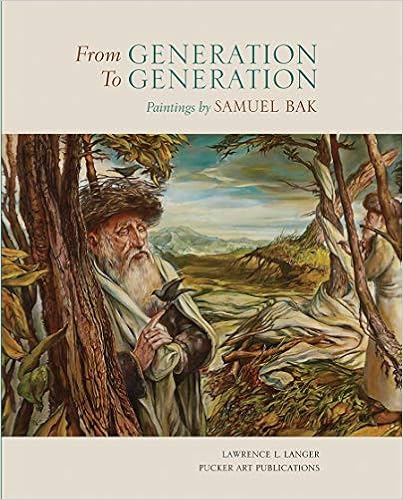
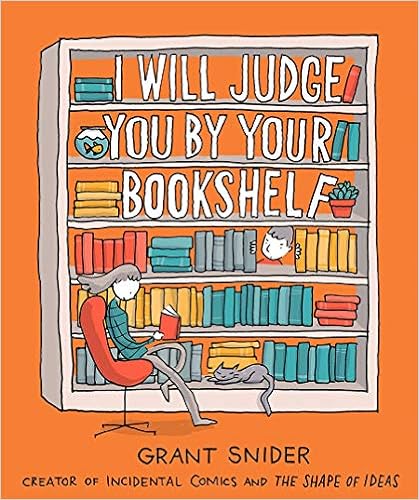
Poems of the Holocaust and Poems of Faith by Aaron Zeitlin
From Generation to Generation: Paintings by Samuel Bak by Lawrence L. Langer
I will Judge You by Your Bookshelf by Grant Snider






